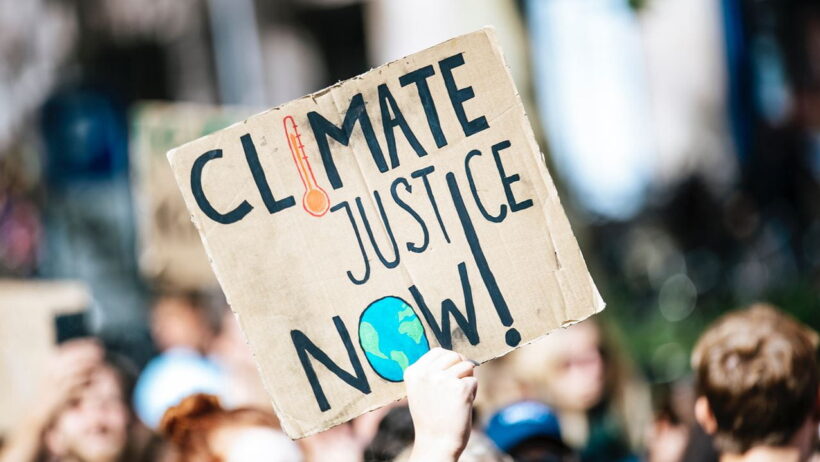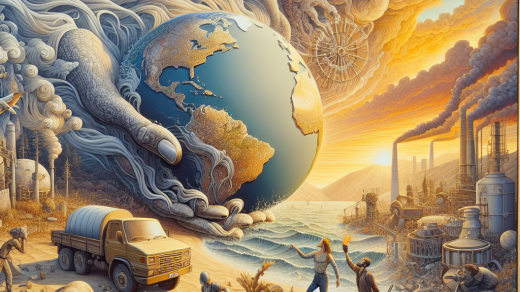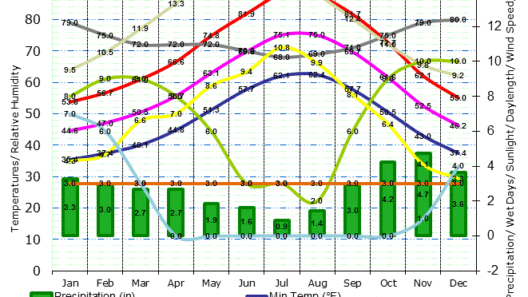In recent years, the discourse surrounding climate change has intensified, invoking diverse reactions across various socioeconomic and religious paradigms. One notable delineation emerges within the Christian community. The essential question surfaces: Do Christians believe in climate change? This inquiry necessitates an exploration not merely of beliefs but also of the theological underpinnings that can both propel and impede action towards environmental stewardship.
The scriptural basis for environmental responsibility is profound, drawing from the very creation narratives in Genesis. Christianity asserts that God bequeathed the Earth to humanity as a trust, as articulated in Genesis 1:28—”Be fruitful and multiply, and fill the Earth and subdue it.” This mandate, often interpreted as a call to dominate nature, can alternatively be understood as a divine injunction to protect and sustain creation. Thus, inherent within Christian doctrine is the notion of custodianship rather than exploitation. Yet this begs the question: Are Christians adequately embracing this role as stewards of the planet in the face of climate calamities?
Many Christians are beginning to recognize the immediacy of climate change, propelled by scientific evidence depicting alarming trends. Rising temperatures, erratic weather patterns, and the frequency of natural disasters are increasingly viewed not only as environmental crises, but also as moral imperatives demanding a faithful response. For the believer, climate change is not just an ecological dilemma; it is a theological crisis that challenges the essence of stewardship mandated in scripture.
Progressive Christian groups, such as the Evangelical Environmental Network, advocate a passionate reconciliation of faith and environmental responsibility. Their narratives emphasize climate change as “God’s call to action” and utilize biblical references to establish a moral framework for addressing ecological degradation. Such organizations argue that faith compels Christians to advocate for systemic change, not merely individual acts of sustainability. They posit that the neglect of environmental issues by the Church is not only a missed moral opportunity but an egregious affront to the divine mandate of stewardship.
However, a contrasting perspective exists within the broader Christian community. Certain factions perceive climate change skepticism as a marker of their faith. A belief that environmental concerns are exaggerated claims of secular ideologies has been fostered by a narrative that prioritizes discussion on the end times or creationism over ecological stability. This has engendered a dichotomy: on one side, Christians advocating for climate awareness; on the other, those who dismiss it as a distraction from spiritual matters. This cognitive dissonance raises critical questions about the role of faith in shaping attitudes towards critical global challenges.
Moreover, the intersection of politics and faith significantly influences Christian perspectives on climate change. In various regions, particularly within the United States, climate change has become a polarized issue, often aligning with political affiliations. Conservative Christians frequently resist the narrative that climate change warrants urgent attention, linking their stance to economic or political agendas rather than theological reflections. This conflation of faith and partisan politics obscures the ethical imperative delineated in scripture to safeguard creation.
However, the advent of climate-related disasters has begun to shift this entrenched perspective. As communities face unprecedented challenges associated with climate change—such as food insecurity, displacement, and health crises—there is an emerging recognition among Christians that inaction is incompatible with their faith. This burgeoning awareness aligns with the biblical exhortation found in Matthew 25:40: “…whatever you did for one of the least of these brothers and sisters of mine, you did for me.” Such verses compel believers to consider the ramifications of environmental negligence on marginalized communities and, by extension, on their spiritual convictions.
Furthermore, interfaith collaboration is fostering a unified front towards climate advocacy. The formation of coalitions among various faith traditions underscores the universal call for stewardship rooted in religious teachings. These interfaith dialogues amplify the urgency for collective action against climate change, presenting not only a moral obligation but also a theological depth that resonates across disparate faiths. This collaborative spirit promises a transformative shift, breaking down barriers and fostering an enriched understanding of stewardship that transcends individual doctrinal boundaries.
As Christians navigate the complex landscape of environmental responsibility, the potential for a paradigmatic shift emerges. This expansion of consciousness advocates for a holistic view that intertwines faith, science, and morality. Acknowledging climate change as a faith matter is pivotal, wherein believers can articulate a robust theological response that embraces scientific understanding. By promoting an ideation of creation care, Christians may effectively surmount inherent skepticism and champion a narrative of hope—a hope that aligns spiritual wellness with ecological resilience.
In conclusion, the prevailing question of whether Christians believe in climate change is peeling back layers of doctrine, interpretation, and responsibility. It underscores the necessity for an informed and proactive approach toward environmental stewardship. As teachings evolve and awareness burgeons, the role of Christians in addressing climate change may very well redefine both community engagement and spiritual commitment. Ultimately, this dialogue is less about doctrine and more about fusing belief with actionable responsibility. The promise of change lies in the ability to synthesize faith with environmental advocacy. Recognizing this as a shared mission may help galvanize a community towards impactful action—one that honors both the sacredness of creation and the intrinsic value of human life amidst the ecological crises of our times.






